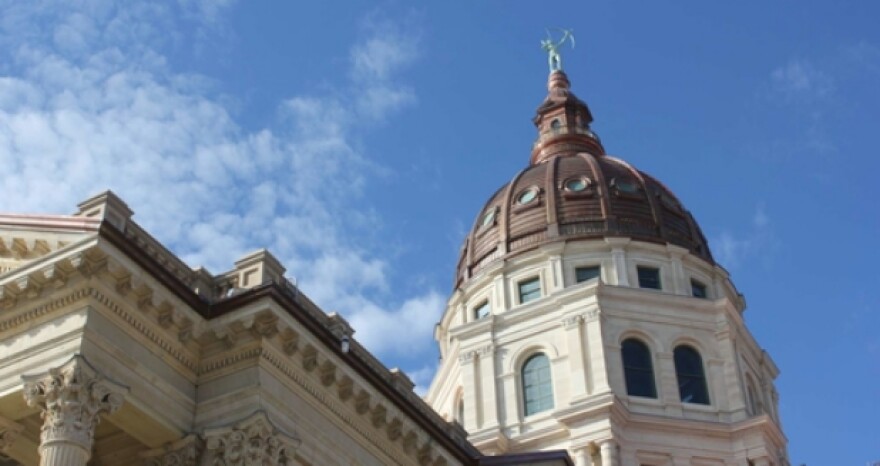Republican lawmakers in Kansas have earmarked $50,000 for the Legislature to hire its own attorneys on school finance issues, leading Democrats to speculate Wednesday that GOP leaders plan to defy a recent state Supreme Court order on education funding.
The money was included in the final version of a plan to keep the state budget balanced through June 2017. Both chambers approved the package Wednesday, sending it to Republican Gov. Sam Brownback; the votes were 68-53 in the House and 22-16 in the Senate.
The Supreme Court last week struck down a 2015 law that determines how the state distributes more than $4 billion a year in aid to its 286 school districts. The justices said the law violates the state constitution by shorting poor districts, and it ordered lawmakers to boost such aid by June 30 or face having schools shut down.
"A decision's been reached," Rep. Jim Ward, a Wichita Democrat and attorney said during the House's debate on the budget plan. "Hiring legal representation is usually done when you have another appeal avenue or you're planning on disregarding the court's decision and you need lawyers to keep you out of jail."
Senate Minority Leader Anthony Hensley, a Topeka Democrat, also suggested that Republicans are preparing to defy the court, creating a "constitutional crisis."
"They need legal counsel to steer them through it," he said after his chamber's vote.
But top Republicans dismissed such talk.
"We need to gather information on the best way to move forward," said House Appropriations Committee Chairman Ron Ryckman Jr., an Olathe Republican. "Having proper representation is beneficial."
The Supreme Court ruled in a lawsuit against the state pursued by the Dodge City, Hutchinson, Wichita and Kansas City, Kansas, school districts since 2010.
Attorney General Derek Schmidt's office is representing the state. It reported Wednesday that as of Jan. 26, it had paid the Wichita law firm of Hite, Fanning & Honeyman nearly $1.36 million and paid another $78,000 to state Solicitor General Stephen McAllister.
The Republican-dominated Legislature is not named as a defendant in the lawsuit.
"The Legislature has no direct representation," said Senate Ways and Means Committee Chairman Ty Masterson, an Andover Republican, adding that the appropriation is "prudent."
The Republican-backed school funding law enacted last year junked the state's old, per-pupil funding formula in favor of stable "block grants" that largely froze aid, outside of contributions to teachers' pensions. The new law also allowed the state to avoid an unexpected $54 million increase in aid to poor districts called for by the old formula.
Schools composed their budgets for the 2014-15 academic year based on the old formula and, in response to the new law, districts cut programs and jobs and ended the school year early.
Mark Tallman, a lobbyist for the Kansas Association of School Boards, said it's not clear how much extra money the court expects lawmakers to spend. The Kansas Department of Education estimates that restoring the aid for the 2015-16 and 2016-17 school years would cost a total of $110 million, but that doesn't include the $54 million districts were shorted for 2014-15.
Asked whether making plans to hire attorneys showed that GOP lawmakers plan to defy the Supreme Court, Tallman said, "Our expectation is that the Legislature will comply."
"I mean, I think the Legislature would expect school districts to comply with the decision," Tallman told reporters during a briefing.
Schmidt said in a statement that he advised the Legislature to appoint its own legal counsel.
"The Legislature needs its own counselor as it works through the many complex policy options," Schmidt said.





